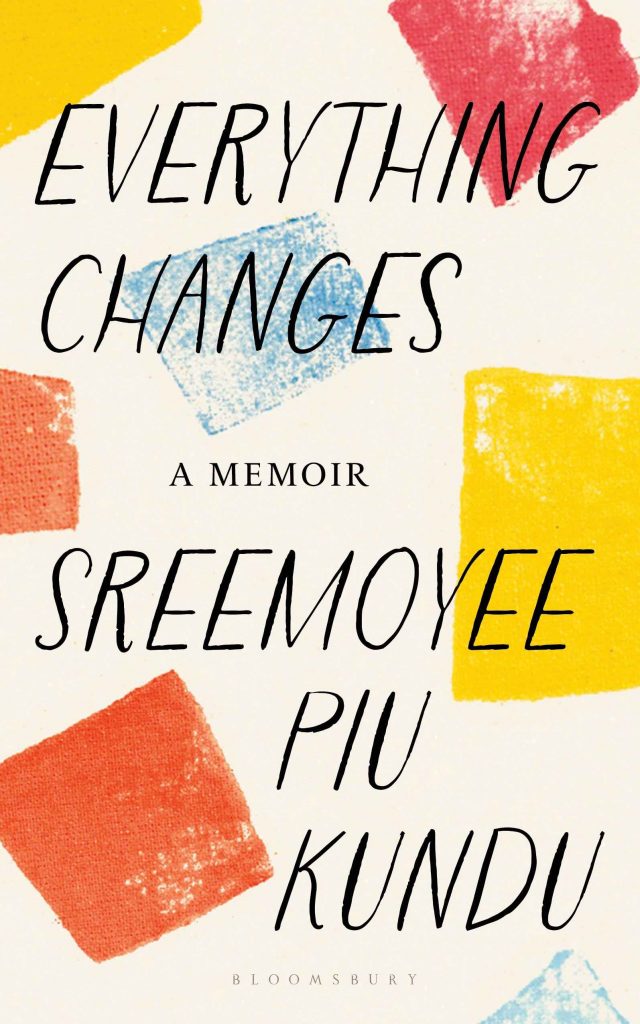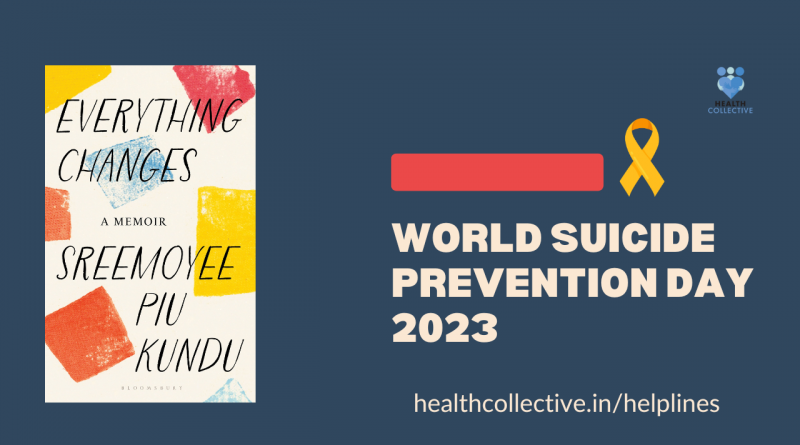Dealing with Suicide Loss: A Daughter’s Memoir
Trigger warning: #Suicide
This excerpt relates to a death by suicide. Please do not keep reading if you are feeling triggered. Please reach out for help via helplines or trusted professionals
Dear Baba…
Memory is a strange beast. The same memories that draw you closer to a person can also tear you apart, annihilate you. Memories bear no guarantees—there are only gates to enter, none to exit.
Memories, like prison guards of war, hold time hostage.
Growing up, I had no tangible memories of my biological father, Basudev Kundu, and yet, it was in his shadow that my entire childhood, practically, was spent.
Sreemoyee Piu Kundu, ‘Everything Changes’
Defined by his looming absence and all the things it breathed to me, even as he himself could say nothing, which is how I learnt to fill in the vacuous spaces. The word ‘late’ was prefixed everywhere before his name—on my passport, school and college certificates; in conversations, amongst nosy relatives; at boisterous birthday parties and lavish family weddings; and in my mother’s pensive silences. My ancestral home located in a shaded by-lane in posh South Kolkata belonged to my maternal grandparents and bore no signs of my father’s existence. Nothing except a large sepia photograph encased in a steel frame in a sprawling puja room on the mezzanine floor, placed alongside a retinue of dead ancestors caged similarly in the same style of photographs—a moustached man with a pouty mouth and intense dark lashes, staring back piercingly in my direction.
From the first time I ever really took notice of the similarities between us, I found myself questioning who he might have been. Who was this man who looked so much like me? Was he a relative, someone close or distant? I had no inkling what the word ‘late’ really meant. The dead have no voice or vocabulary to offer their versions of the story. And so, the word ‘late’ only added to the suspense and inquisitiveness festering in my young, restless mind. No one breathed a word about his demise to me, either. What was the ailment that had robbed a young life such as his? It was assumed, perhaps, that I would piece it together on my own when I was older, the puzzle of an absentee father. Maybe, looking back now, the secrecy was intended to protect me.

Baba* ______ (method of suicide redacted by Health Collective in keeping with best practice guidelines) in his ancestral home in Midnapur, a district in our home state of West Bengal, a year or so after he was diagnosed with schizophrenia and started undergoing psychiatric treatment. He passed away on the auspicious occasion of Lakshmi Puja, when I was four.
Editor’s Note: If you are feeling distressed, please stop reading and reach out to a trained professional for help. We have a list of India-helplines here. Please know that you are not alone, and that suicide is preventable
I was born on 14 December 1977, a wintry Wednesday morning, after a complex C-section. Everything I had gathered about Baba during my growing-up years was essentially from eavesdropping on adult conversations — catching fleeting snatches of an almost invisible man before I was inevitably discovered. I could not help but notice how uncomfortable everyone got in my presence, as if they were hiding something. Baba remained largely pieced together by a fertile childhood imagination and the longing for a superhero, I suppose. Someone to fill in the blanks; to look up to and find a resemblance in, not just physical, but one that would protect me, offer answers and fix things as I grew up. The first time I knew Baba was a person, albeit missing, was when I spotted rows after rows of silk ties and woollen blazers hanging inside an antique teak almirah in my grandparents’ bedroom I surmised could not belong to Bapi, my maternal grandfather.
Excerpted with permission from Everything Changes by Sreemoyee Piu Kundu, published by Bloomsbury, September, 2023




